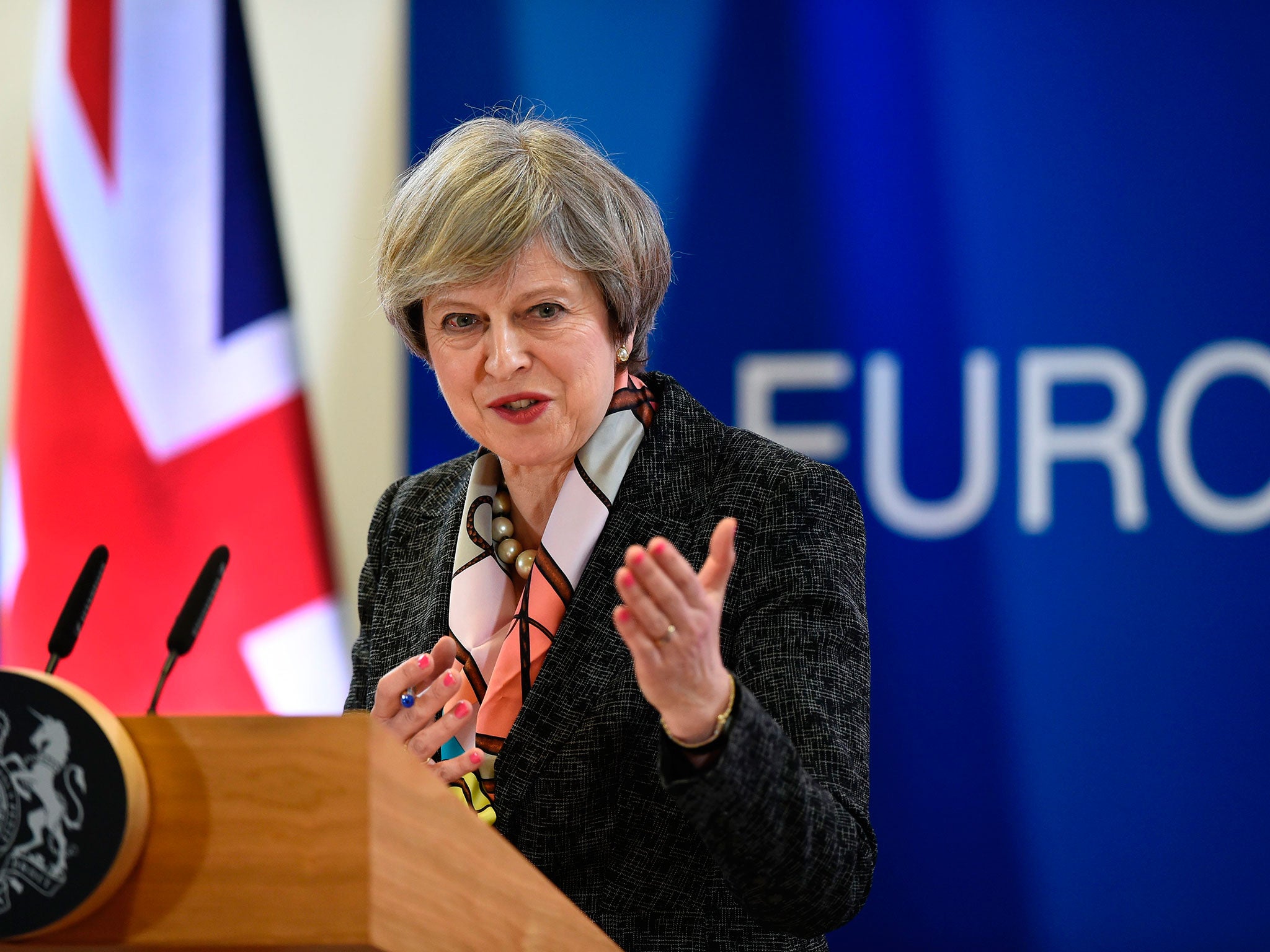EU leaders voice fears over 'fragile Balkans situation' as Theresa May vows to counter Russia
Prime Minister says Britain committed to combating ‘Russian disinformation campaigns’

European leaders have expressed concern over the “fragile situation” in the western Balkans, as Theresa May pledged to counter “destabilising” Russian activities in the region.
It was a key focus of a European Council summit in Brussels, which came amid allegations of Russian involvement in an attempted coup in Montenegro.
The Prime Minister said Britain would increase its cooperation with the country, as well as other nations in the western Balkans including Serbia, Kosovo and Macedonia.
“I will make clear my concerns about the potential for increased instability in that region and the risks that presents to our collective security,” Mrs May said as talks continued.
“In light of the alleged Montenegro coup plot, I will call for us to do more to counter destabilising Russian disinformation campaigns and raise the visibility of the western commitment to this region.”
She announced that the UK would be hosting the 2018 Western Balkans Summit, as well as enhancing security cooperation on organised crime, corruption and cyber security.

Donald Tusk, the newly re-elected President of the European Council, said the region was “vital for Europe”.
“Tensions and divisions have got out of hand, partly because of unhealthy external influences, which have been destabilising several countries for some time,” he told heads of state.
“I will propose to leaders that we take action, including in our strategic communications.
“The European Union remains faithful to the promise of Thessaloniki [on states joining the EU] and fully committed to the stability and prosperity of the region.”
Jean-Claude Juncker, the European Commission president, claimed no new countries would be accepted over his five-year term in 2014.
But a document supported by 27 members of the European Council, minus Mrs May, said the EU was committed to supporting western Balkans nations to help them join the union.
“In light of the internal and external challenges that the region is facing, the European Council discussed the fragile situation in the western Balkans, which it will keep under review,” it added, in what was read as a veiled allusion to Russia.
Montenegro’s special prosecutor has accused Russia and its intelligence operatives of plotting a coup attempt that included plans to kill the country’s former Prime Minister.
Milivoje Katnic said last month there was evidence of Russian state involvement “at a certain level” in the alleged failed plot to overthrow the government and prevent it joining Nato.
Russia has dismissed the claims as “absurd” and “irresponsible”, while also denying allegations of a disinformation campaign using state-backed news outlets.
Both Nato and the Kremlin have increased military deployments and drills in bordering areas including Serbia and Montenegro, exchanging accusations of aggression amid tensions heightened by the wars in Ukraine and Syria, and allegations of Russian interference in elections.
Join our commenting forum
Join thought-provoking conversations, follow other Independent readers and see their replies
Comments